This post contains affiliate links.
Discover the truth behind common backyard chicken myths. Learn the facts about raising poultry and debunk misconceptions about odors, space, noise, and more. Make informed decisions for your flock.
Welcome to my myth-busting journey into the world of backyard chickens! Whether you are a curious newbie or a seasoned enthusiast, it’s easy to get swept up in misinformation. I will sort fact from fiction and provide clear, trustworthy insights.
Common Myths Debunked: Keeping Chickens in Your Backyard
When raising backyard chickens, there is no shortage of common misconceptions that make potential chicken keepers hesitant. One of the biggest backyard chicken myths debunked is that chickens require a lot of space and will not thrive in an urban environment. Truth is, with a well-designed chicken coop and some backyard space, chickens lead happy and healthy lives right in your own yard.
Another myth about backyard chickens is that they are messy and will ruin your garden. In reality, chickens actually help by eating pests and turning over soil, contributing positively to your garden’s health.
There is also the belief that chickens are noisy and unsuitable for backyard keeping. However, hens make less noise than a barking dog and usually stay quiet during the night. Additionally, they also make less noise than having roosters.
Concerns about bird flu and other diseases often deter people from keeping chickens, but with proper care and cleanliness, raising chickens is safe. Additionally, if you maintain a clean coop and securely store the feed will decrease attracting rodents.
Many people also believe that chickens need a rooster in order to lay eggs, but this is untrue—hens lay eggs without them. Roosters are for fertilizing eggs.
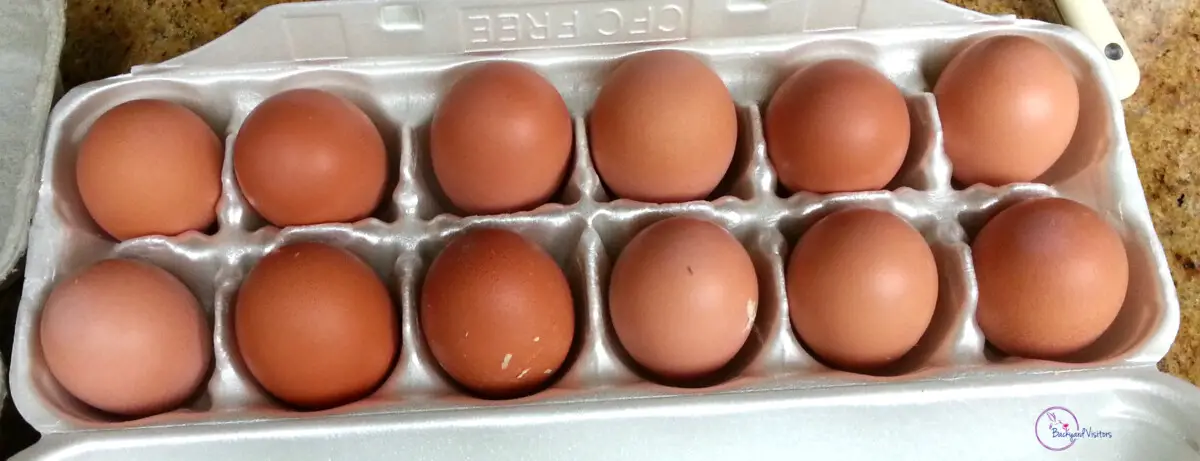
As seasoned chicken enthusiasts know, it is important to debunk these chicken myths to encourage more people to experience the joys of keeping backyard chickens. While the initial setup for a chicken coop may seem tough, once it is done, chicken keeping is actually quite simple. Do not let common myths hold you back from becoming a confident poultry-raiser. With the right information, raising chickens is a truly rewarding experience that brings a bit of farm life to your backyard.
Most Common Myths About Keeping Backyard Chickens
- Chickens Are Noisy: Many people believe that chickens are loud animals, but hens typically cluck softly except when they lay an egg. Roosters are noisier. Hens do not need a rooster to lay eggs.
- Chickens Smell Bad: If managed properly, chickens themselves do not smell bad. Issues arise from inadequate coop maintenance and improper waste management.
- They Attract Vermin: It is true that food sources can attract rodents, however with proper food storage and coop design, this is minimized.
- Backyard Chickens Are Dirty: Chickens enjoy dust baths, which help control pests on their bodies. When they are well-cared, they are actually quite clean animals.
- They Require Too Much Space: While more space is always better, chickens will thrive in relatively small backyard spaces if managed properly and given appropriate exercise.
- You Need A Lot Of Chickens: Some believe a large flock is necessary, however, even a few chickens will be enough to provide fresh eggs for a family.
- Chickens Can not Handle Cold Weather: Many breeds are quite hardy and will tolerate cold climates well with adequate shelter and preparation.
- Raising Chickens is Expensive: Initial setup can be costly, however ongoing costs are often low, especially if you repurpose materials and are resourceful with feed.
- Chickens Spread Disease: With proper care, the risk of disease is minimal. Regular cleaning and good biosecurity practices are essential.
- All Chickens Lay Eggs Daily: Egg production varies based on the breed, age, and season. Most hens do not lay eggs every single day. It is important to understand your chicken’s health cycle of laying and molting.
Read my other related articles:
- The Basics of Backyard Chicken Keeping: What You Need to Know
- Deciding If Backyard Chickens Are Right for You
- Understanding Local Regulations for Keeping Chickens
- The Initial Costs and Setup for a Backyard Chicken Coop
- Daily and Weekly Care Routines for Healthy Backyard Chickens
- What to Expect from Your Flock Of Backyard Chickens
- How Chickens Contribute to a Balanced Ecosystem at Home
Do Chickens Really Attract Rats?
The idea that backyard chickens automatically attract rats stems from the notion that all chicken-keeping is messy and attracts pests. It is true that food sources can draw rodents, however this can be reduced with appropriate food storage and coop design.
A clean coop environment and proper food storage in rate-proof containers is key to reducing and warding off undesirable pests.
Proper coop maintenance, such as cleaning up spilled feed, food management and preventing access to the chicken coop are key ways to prevent unwanted visitors. The idea is about how you are raising chickens rather than the fact that you are raising them. Focusing on sanitation and management is monumental to debunk these myths.
Debunking the Myth: Chickens are Too Noisy for Backyard Keeping
If you are interested in raising backyard chickens, you have probably heard the myth that chickens are too noisy for backyard keeping. In reality, this is one of those common misconceptions that often deter potential chicken enthusiasts from starting their flock.
Chickens do make noise, but their sounds are generally quite manageable, especially when compared to other household pets. For example, a dog’s bark is much louder and more frequent as well as a crowing rooster. It is essential to differentiate between the occasional clucking of hens and the loud crow of a rooster.
My hens make noise for three reasons: First, after they lay an egg they like to shout from the rooftop their excitement and announce to me their accomplishment. Since they lay eggs once a day or less, the squawking is minimal. Second, they will squawk when they sense a potential predatorial threat. This tells the rest of the flock to be on the lookout and be alert for any danger such as a hawk overhead. Lastly, the sound of my car when I come home. This brings them to talk enthusiastically amongst themselves in anticipation of food, attention and an ability to free-range outside.
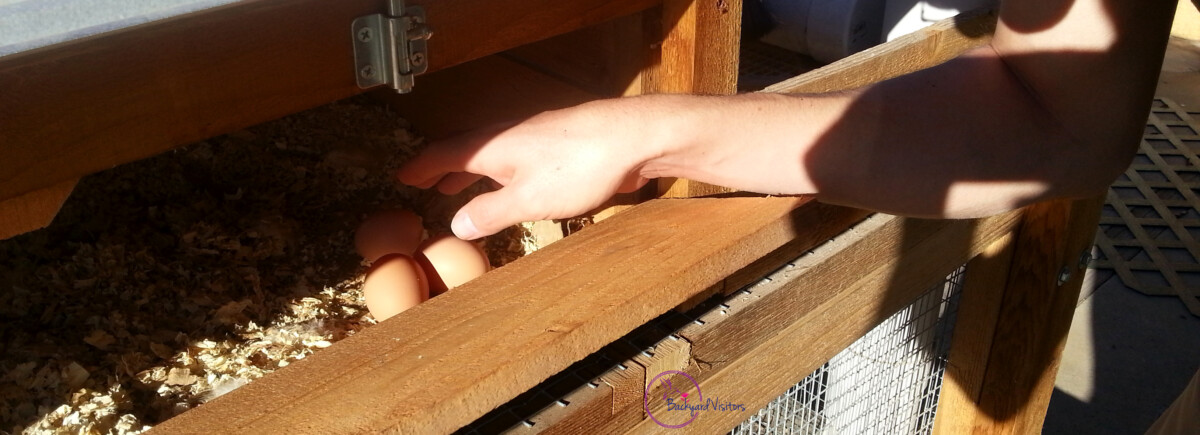
Notice the security latch above and the sturdy wire mesh below to keep predators out.
Many backyard chicken keepers opt to keep only hens, which are much quieter. Therefore, noise should not be a barrier to keeping backyard chickens. The occasional clucks and cackles of a hen are a far cry from an incessant racket. Many people find the gentle sounds of chickens to be quite soothing.
When considering raising backyard chickens, it is important to understand that confined chickens, when taken care of properly, do not generate excessive noise. This contributes to debunking the common myths that surround backyard chicken keeping. Furthermore, chicken keeping offers numerous benefits, such as fresh eggs and natural pest control. By getting familiar with chicken myths and debunking common misconceptions, you will feel more confident in your decision to keep chickens.
Many chicken keepers enjoy a peaceful environment, just like their chickens. Raising chickens is a rewarding and relatively quiet hobby. With these backyard chicken myths debunked, you can approach chicken keeping with a realistic understanding.
Understanding Chicken Coops: Debunking Common Misconceptions
When keeping chickens in the backyard, the coop is an essential component with several common misconceptions that need debunking. Many believe that a good chicken coop needs to be elaborate, however that is not always the case. Your coop does not have to be a grand structure; a simple, well-ventilated, and secure chicken coop will do the job.
Whether you are new to raising chickens or an experienced poultry keeper, it is important to understand that your coop should be predator-proof and easy to clean. It does not need to break the bank.
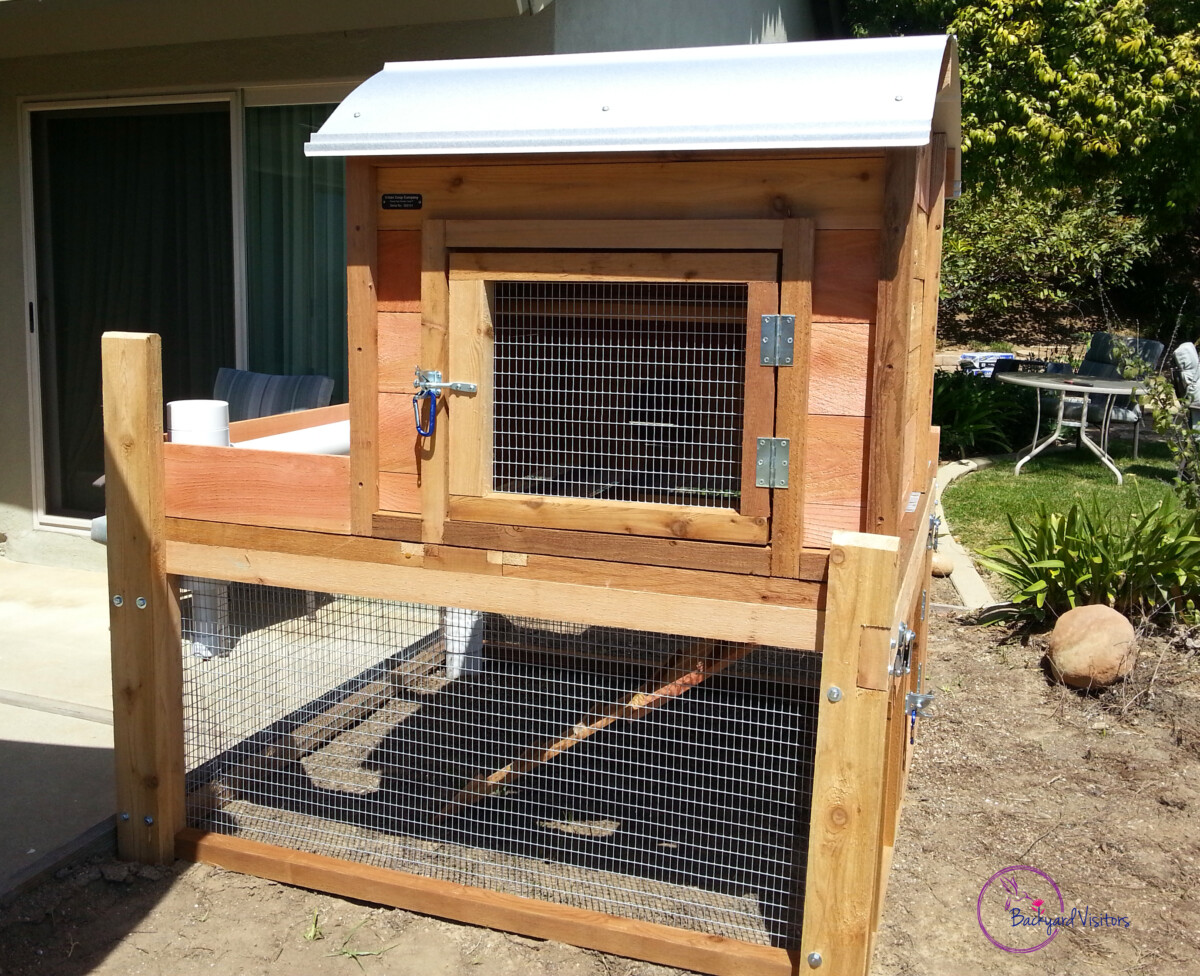
Another common misconception is that coops require constant upkeep and repair. In reality, a well-built coop will be quite low-maintenance. Regular cleaning and occasional repairs are all it takes to keep your chickens happy and safe.
Some people worry about their chickens not having enough room inside the coop. However, chickens actually spend a lot of their time outside the coop during the day. As long as they have a secure place to roost at night and lay their eggs in a nest box they will be fine.
The general rule for a chicken coop is 3-5 square feet per chicken. I recommend 5 square feet per chicken for regular sized hens.
Lastly, people often think that chicken coops will create unpleasant odors in their backyard. With proper management and regular cleaning, a well-maintained coop will not be an eyesore or a nose deterrent!
By debunking these common myths about chicken coops, I hope more people will feel confident in keeping backyard chickens. After all, raising chickens is a delightful and rewarding hobby without being burdened by false perceptions or unnecessary complications.
Common Misconceptions About Bird Flu and Raising Backyard Chickens
It is time to clear up some common misconceptions about bird flu and raising backyard chickens. One major myth is that all chickens are carriers of bird flu. Many chicken enthusiasts and chicken keepers worry that keeping chickens in their backyard means a higher risk of bird flu. However, this is not entirely accurate. If you follow proper poultry raising guidelines and maintain good hygiene, the risk of bird flu among your flock is significantly minimized.
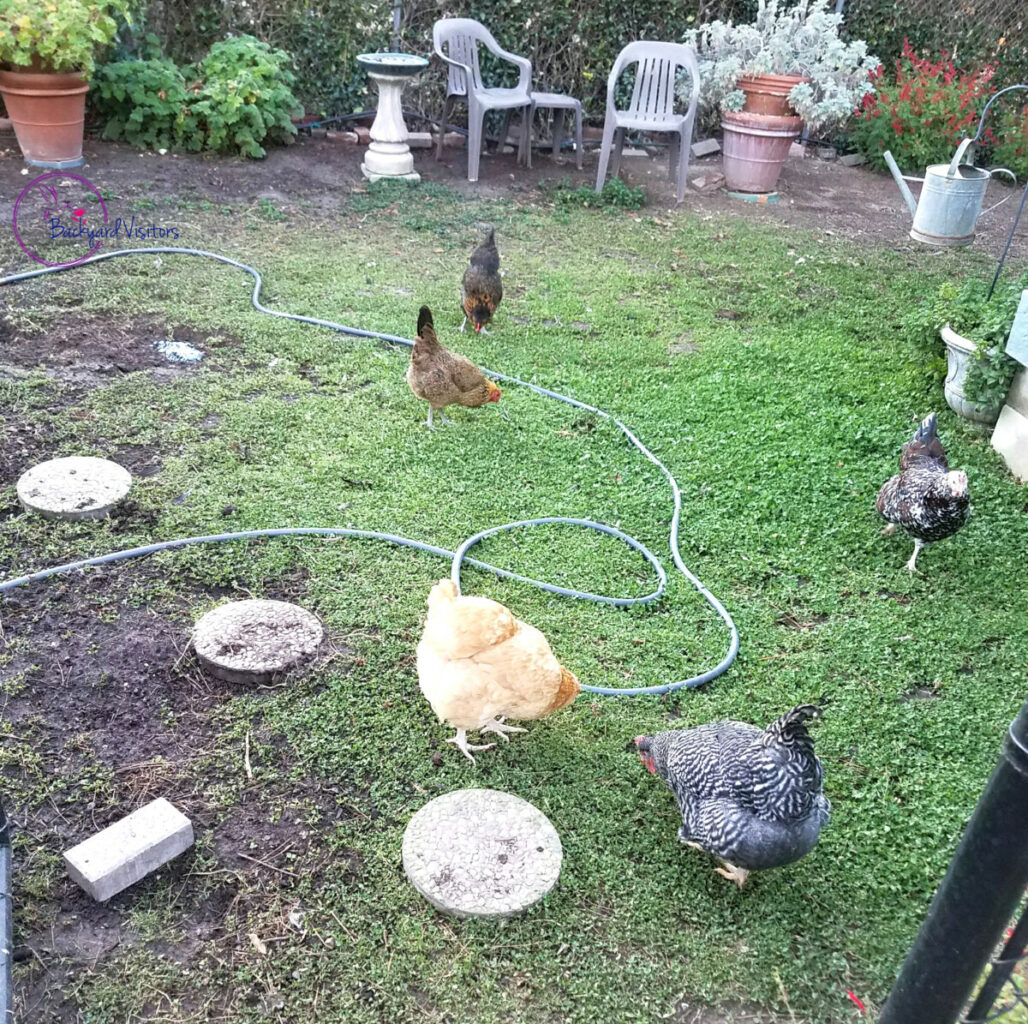
When discussing chicken myths, confined chickens in commercial settings may actually have a higher risk due to close quarters. This is not to say that backyard chicken keepers should not be cautious, but rather that the environment in which chickens are kept plays a critical role. Raising backyard chickens responsibly means providing them with ample space and ensuring they are healthy and well-cared.
Common myths about bird flu often deter people from enjoying the joys of raising chickens. Not all common misconceptions are based on facts. When hearing chicken myths it is essential to do your homework and decide for yourself. Many new chicken keepers find comfort in knowing that raising chickens comes with much manageable risk when compared to other poultry raising practices. Raising chickens is a rewarding experience when myths and misconceptions are squashed.
When hearing about the dangers of bird flu associated with backyard chickens, take a moment to consider the facts. Informed chicken keeping ensures a healthy environment for your feathered friends and allows you to responsibly enjoy the benefits of raising backyard chickens.
Hens Don’t Need a Rooster to Lay Eggs: A Common Myth Explained
One of the most common myths in raising chickens is the belief that hens need a rooster to lay eggs. Chickens or more specifically hens are biologically programmed to lay eggs and do so whether or not a rooster is present. This is one of the first chicken myths that new chicken keepers often encounter.
Chickens have an ovulation cycle. A rooster is needed only for fertilization and only if you are considering increasing your flock with baby chicks.
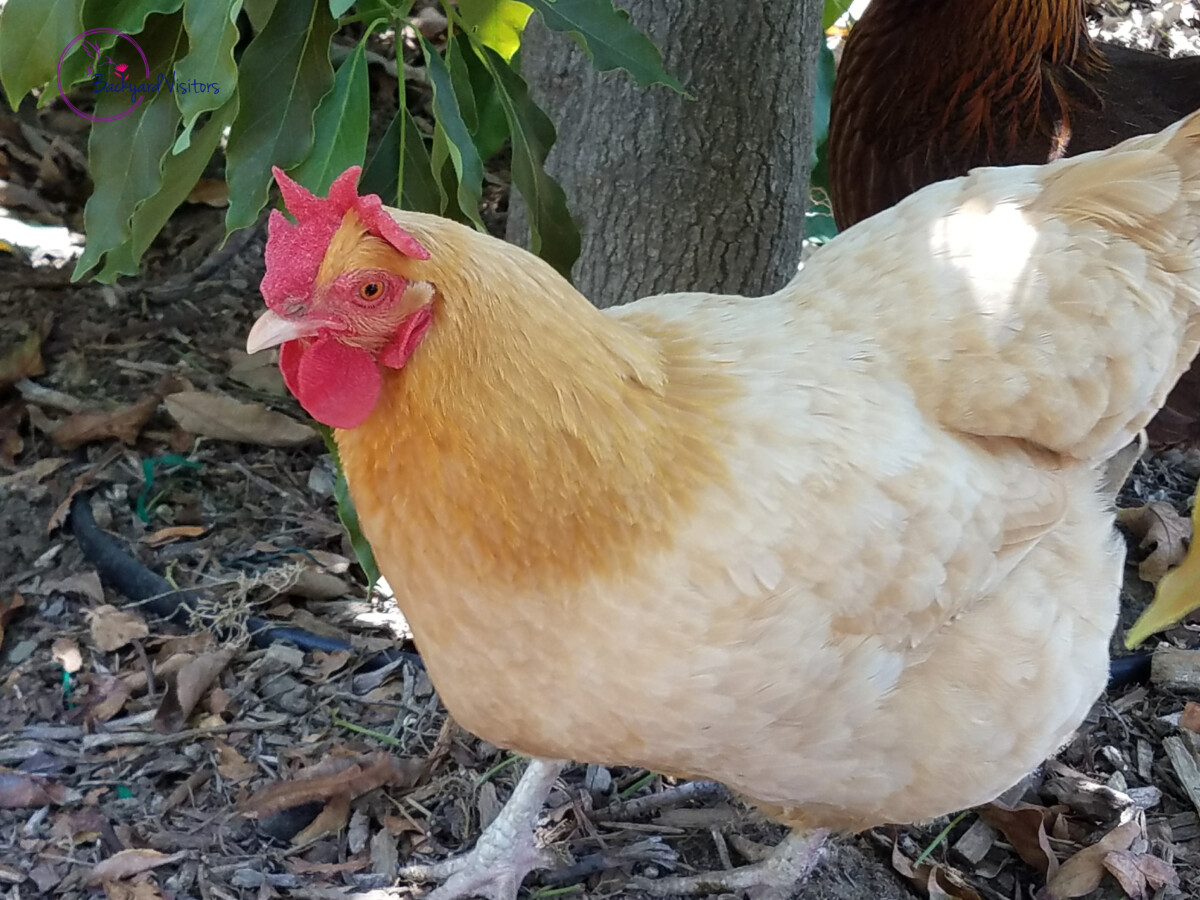
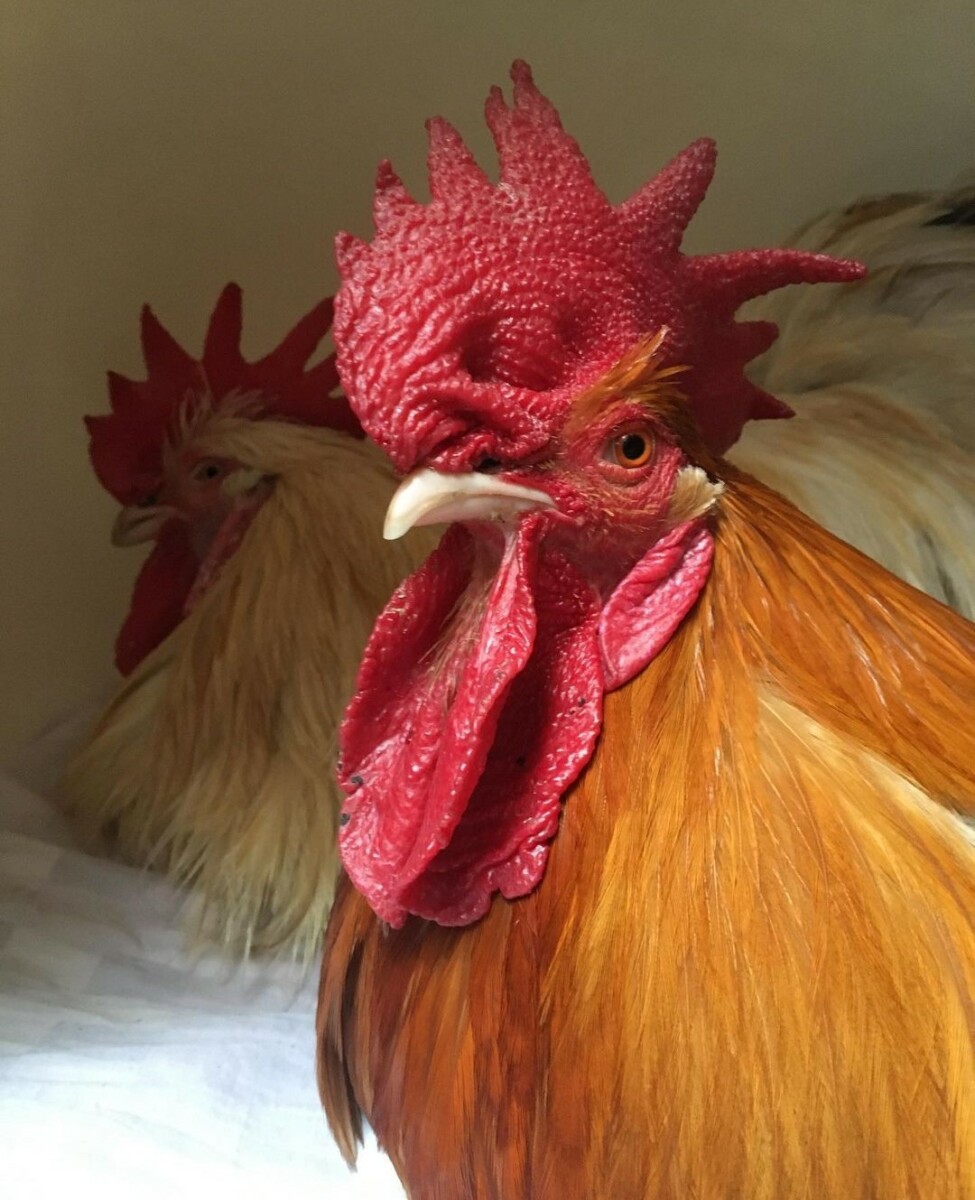
Photo by: lapochas
When considering backyard chickens, understanding these common misconceptions is crucial. The role of a rooster is more aligned with fertilization rather than egg production. Therefore, if you are raising backyard chickens solely for egg production, having a rooster is not necessary.
Understanding these misconceptions helps in planning your backyard flock properly. No need to worry about the added noise or potential disputes that may arise when including a rooster in your backyard setup if you do not want your eggs to be fertilized.
This myth fosters unnecessary worries and often deters people from starting poultry raising. By debunking common myths such as this one, aspiring chicken keepers gain a clear picture of what is actually required. Clarifying myths about backyard chickens promotes a more enjoyable and less intimidating experience in poultry raising.
Chickens and Property Values: Busting the Myths
When raising backyard chickens, one of the most persistent myths is that hens will negatively impact property values. Many people believe that keeping chickens leads to lowering the desirability of homes in your neighborhood. However, this is one of those backyard chicken myths that have been debunked time and again. Chickens are often unfairly associated with filth, noise, and general disarray, contributing to these myths about backyard chickens and property values.
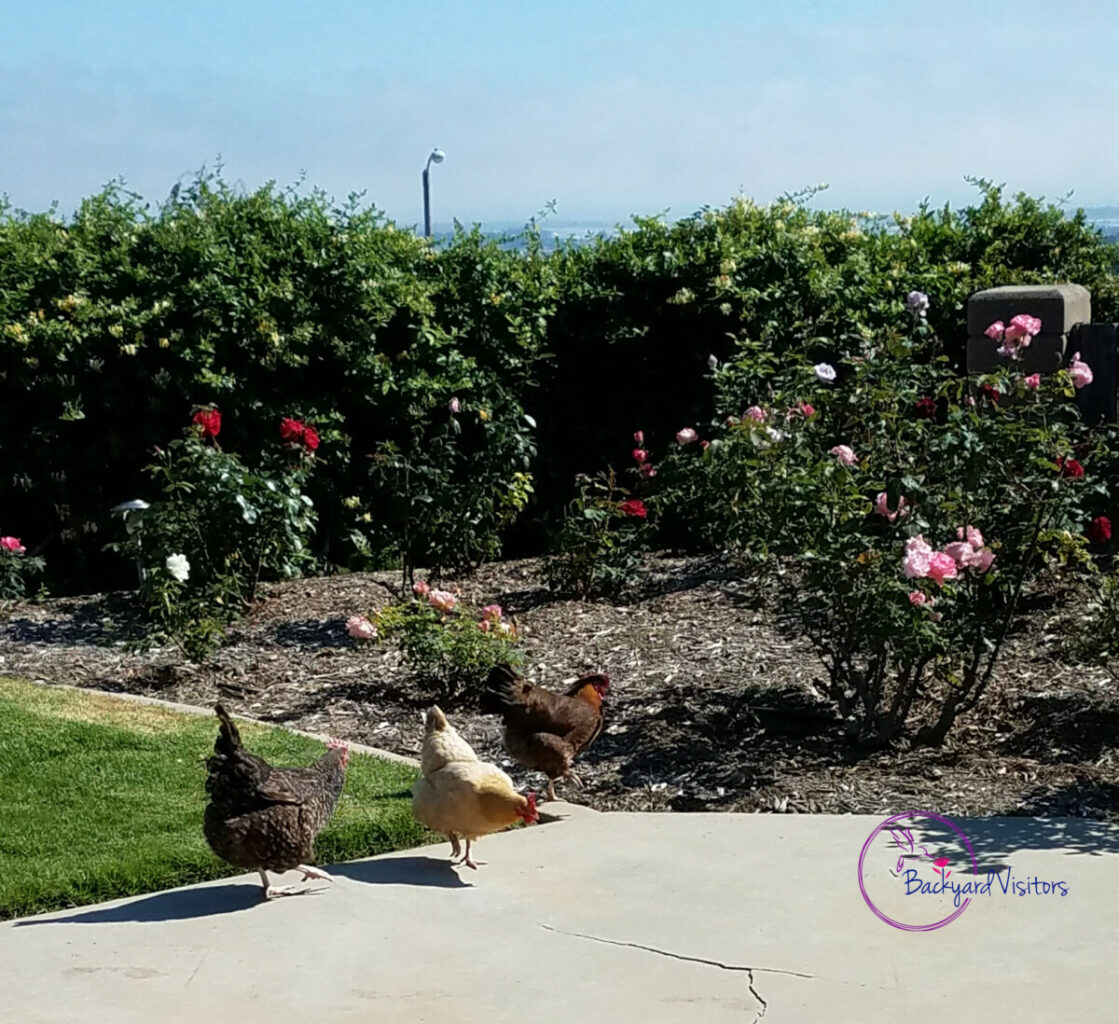
free-ranging.
In reality, many communities find that well-managed backyard chicken-keeping does not negatively impact property values and will even have positive effects, such as promoting sustainability and providing fresh eggs. The key is responsible and considerate chicken-keeping practices that address the concerns of neighbors and the community.
5 Misconceptions With Chickens And Decreased Property Values
- Nuisance and Noise: Some people believe that chickens, particularly roosters, are noisy and create a disturbance, leading to decreased property values. In reality, hens (female chickens) are relatively quiet, and many urban or suburban areas have regulations that prohibit keeping roosters.
- Odor and Cleanliness: Another common concern is that chickens produce unpleasant odors and that chicken coops are dirty and attract pests, which could lower property values. Properly maintained coops with regular cleaning do not produce significant odors or attract pests.
- Aesthetic Concerns: Some people think that chicken coops and runs are unsightly and detract from the overall appearance of a neighborhood. However, well-designed and maintained coops can be visually appealing and blend in with the surrounding environment.
- Health and Safety: There is a fear that chickens can spread diseases to humans, which could negatively affect property values. While chickens can carry certain diseases, the risk is minimal with proper care and management.
- Regulatory and Zoning Issues: Concerns about violating local ordinances or zoning regulations by keeping chickens might contribute to the belief that property values will decrease. Ensuring compliance with local laws and regulations can mitigate this concern.
Are Brown Eggs Really “Dirty”?
One of the most common misconceptions is that brown eggs are somehow “dirty” or inferior compared to their white counterparts. This is particularly baffling for new chicken keepers or those contemplating raising chickens for the first time. The color of an egg’s shell is actually determined by the breed of the hen. Chickens such as the Rhode Island Red or the Plymouth Rock are known to lay brown eggs, while Leghorns lay white ones.
The nutritional value and cleanliness of an egg is not influenced by its color but rather by the lifestyle and diet of the hen. Brown eggs are as clean and nutritious as white eggs.
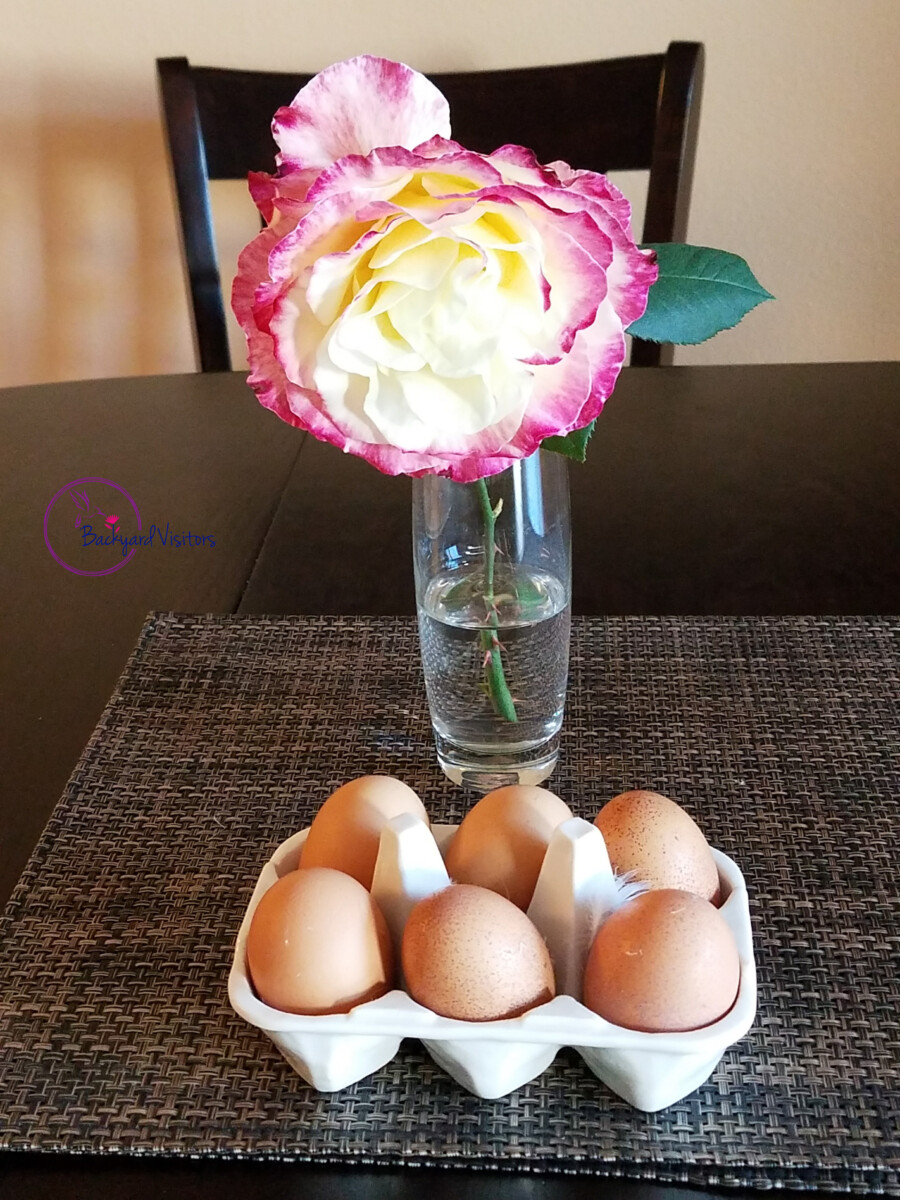
Ensure your coop is clean, provide a well-balanced diet, and maintain a healthy environment to contribute to the quality of the eggs rather than to their color. This is one of the many common myths about backyard chickens that is debunked.
Debunk common myths by focusing on proper poultry raising techniques and knowing that brown eggs are not dirty is both rewarding and enjoyable. The next time someone tells you that brown eggs are dirty, you can confidently explain why that is not true.
Chicken Breeds That Lay Brown Eggs
- Rhode Island Red: A popular and hardy breed known for its excellent egg-laying capabilities.
- Plymouth Rock (Barred Rock): Another hardy breed that lays a good number of brown eggs.
- Orpington: Known for their gentle nature and good egg production, Orpingtons lay brown eggs.
- Australorp: This breed is known for its prolific egg-laying and lays brown eggs.
- Sussex: Sussex chickens are good layers of brown eggs and are also known for their friendly disposition.
- Marans: Famous for their dark brown eggs, Marans are a popular breed among backyard chicken keepers.
- Wyandotte: Wyandottes are known for their beautiful plumage and consistent laying of brown eggs.
- New Hampshire Red: A breed that is similar to the Rhode Island Red and known for its good egg production of brown eggs.
- Delaware: This breed is known for laying medium to large brown eggs.
- Brahma: Brahmas are large birds that lay medium-sized brown eggs.
- Buff Orpington: A specific variety of Orpingtons known for their golden feathers and brown egg production.
- Dominique: Known as America’s oldest breed, Dominiques lay brown eggs.
- Barnevelder: A Dutch breed known for its beautiful laced plumage and brown eggs.
- Welsummer: This breed is known for its terracotta brown eggs with speckles.
- Cochin: Large, fluffy birds that lay medium-sized brown eggs.
- Faverolles: This breed lays light brown to pinkish eggs.
- Java: One of the oldest American breeds, Javas lay brown eggs.
- Langshan: Known for their size and egg production, Langshans lay brown eggs.
- Buckeye: Developed in the United States, Buckeyes lay brown eggs.
- Red Star (also known as Red Sex-Link): A hybrid breed specifically developed for high egg production of brown eggs.
These breeds vary in size, temperament, and egg-laying capacity, but they are all known for producing brown eggs.
Common Misconceptions: Keeping Chickens is a Lot of Work
One of the common misconceptions about raising chickens is that it requires a tremendous amount of work. In reality, keeping backyard chickens is quite manageable with a little planning. When it comes to chicken keeping, you might be surprised to find that these feathered friends are relatively low-maintenance.
One of the chicken myths you will often hear is that you will spend all your free time cleaning coops and tending to hens. However, with a routine in place, you will easily incorporate chicken care into your daily life without much hassle. In fact, many backyard chicken enthusiasts find that raising backyard chickens is a relaxing and rewarding hobby.
Similar to any pet, keeping chickens does require some attention, but it is far from burdensome. Common myths suggest that you will have to constantly worry about feeding, watering, and cleaning up after your poultry. The truth is that chickens, like other pets, benefit from a regular schedule which makes managing their needs straightforward.
Automatic feeders and waterers can significantly reduce the time spent on daily chores. Another aspect often overlooked when debunking the myth that keeping chickens is a lot of work is the joy and companionship that hens bring to your household, making poultry raising a delightful experience.
Next time you hear myths about backyard chickens being too much work, remember that with a bit of preparation and the right tools, chicken keeping is simple and rewarding, putting those common misconceptions to rest.
Check out my other posts on Backyard Chickens
Frequently Asked Questions
Q: Do backyard chickens require a lot of space and are they unsuitable for urban environments?
A: A well-designed coop and a bit of backyard space, chickens are perfectly happy and lead healthy lives even in an urban setting. It’s a common myth that chickens need sprawling areas to thrive, but they can adapt well to more confined spaces with proper care.
Q: Are backyard chickens excessively noisy and disruptive to the neighborhood?
A: Contrary to popular belief, hens are actually quieter than the average dog. They make some noise during the day with their clucking, but they are generally silent at night. The noise level is manageable and shouldn’t be a major concern if you’re considering raising chickens.
Q: Will keeping backyard chickens attract rats and other pests?
A: Maintain a clean coop and securely store your chicken feed in sealed, rat-proof containers so as to not attract rats or other pests. Proper sanitation and food management are key to preventing unwanted visitors.
Q: Do I need a rooster for my hens to lay eggs?
A: No, you do not need a rooster for your hens to lay eggs. Hens will lay eggs regardless of whether a rooster is present. Roosters are necessary only if you want fertilized eggs for hatching chicks.
Q: Are brown eggs dirtier or less nutritious than white eggs?
A: The color of the eggshell has no bearing on the egg’s cleanliness or nutritional value. Brown eggs are as clean and nutritious as white eggs. The color difference is simply due to the breed of the hen.
Q: Is raising backyard chickens a high-maintenance hobby?
A: Raising backyard chickens is quite manageable with a bit of planning and routine. While it does require some attention, it’s far from being an overwhelming task. Regular maintenance, such as cleaning the coop and checking on food and water, is easily incorporated into your daily routine, making the activity both relaxing and rewarding.
Q: Will keeping backyard chickens negatively impact property values?
A: Well-maintained coops and healthy chickens do not inherently lower property values. Chickens can be kept discreetly and cleanly, much like any other pets, reducing concerns about property value.
Q: Do backyard chickens pose a high risk for bird flu?
A: With proper care and hygiene, the risk of bird flu is significantly minimized in backyard chickens. It’s essential to follow good poultry-raising guidelines to maintain a healthy environment for your flock.
Happy Backyard Chicken Keeping!
Backyard Visitors is a participant in the Amazon Services LLC Associates Program, an affiliate advertising program designed to provide a means for sites to earn advertising fees by advertising and linking to Amazon.com. We also participate in other affiliate programs which compensate us for referring traffic.

